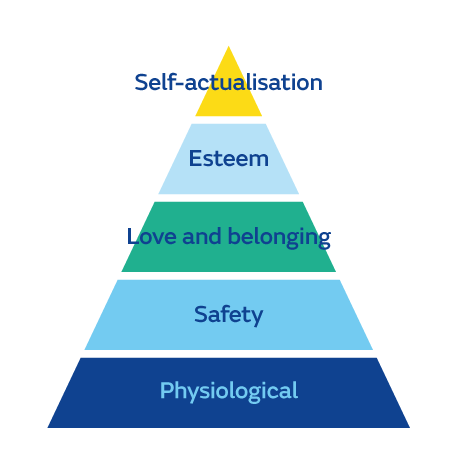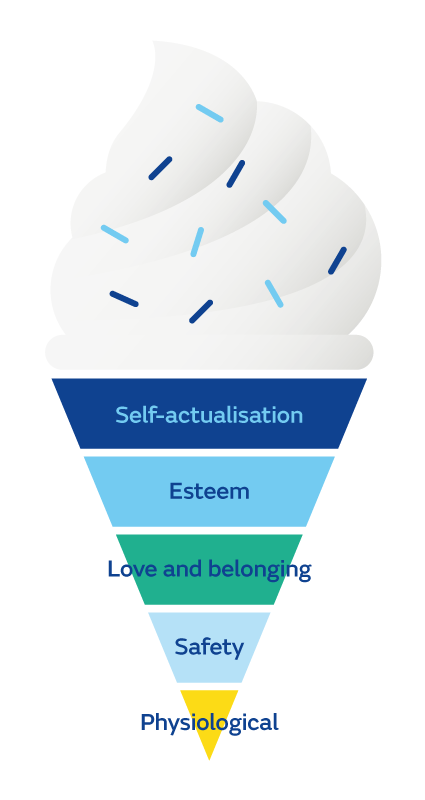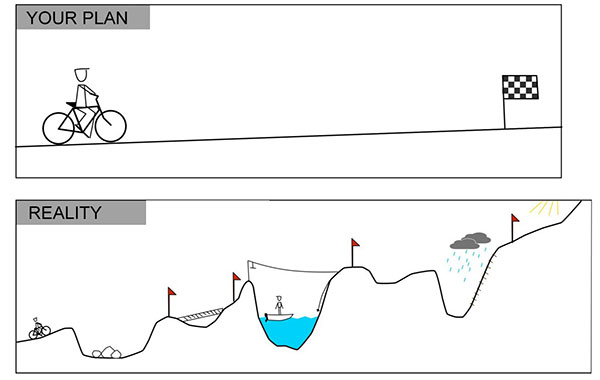Dentist Dr Linda Doan takes a further look at the experiences of young dental practitioners during the COVID-19 pandemic, and offers her own framework to help cope with its impact
In a
previous article, I discussed some survey findings into the experiences of dental students and young dentists during the COVID-19 lockdown between March and June 2020, which was conducted via social media. The survey revealed both negative and positive consequences of the lockdown.
I considered the survey’s findings within psychologist Abraham Maslow’s “Hierarchy of Needs” pyramidal framework, based on human motivation and fulfilment in life. Maslow suggests that for us to be fulfilled, generally our needs at the lower tiers will have to be met before we can ascend to higher needs (Fig 1). The survey’s findings strongly suggested the COVID-19 pandemic affected us across all levels of human needs.
 Fig.1 Maslow’s Hierarchy of Needs (Adapted)
Fig.1 Maslow’s Hierarchy of Needs (Adapted)
In times of chaos it is normal to experience fear, vulnerability and feel overwhelmed. As I am writing this, COVID-19 remains a global threat and the uptick in daily infections in Victoria prompted a state-wide stage 4 lockdown. The uncertainty is palpable across the rest of the nation as we witness what Victorians are going through. COVID-19 remains unassuming in its impact on our daily lives.
There’s no roadmap on how COVID-19 will continue to play out in the coming months, or years, or how it will continue to impact on our daily routines. What we can be certain about is that the human experience is full of challenges. Life is but a constant ebb and flow, of highs and lows, of triumphs and tribulations. The only certainty in life is that we will encounter more obstacles and setbacks. I like to call these the inevitable ‘potholes’ along life’s journey.
So how do we deal with these potholes? One aspect could be our approach and how we rise up to meet challenges and setbacks. To consider this, I’ve turned Maslow’s pyramidal model on its head, so that we can literally and figuratively get on top of our lives and take control (see Fig 2 below). Here is my proposed method to deal with all the inevitable challenges in life.
The ICE C-R-E-A-M Method
 Fig 2. The ICE C-R-E-A-M Method
Fig 2. The ICE C-R-E-A-M Method
I’m the first to admit I had more than a few ice creams than usual over the lockdown period. Given our profession’s natural tendency to vilify sugars and its role in caries prevalence, indulgence in any amount of sugar used to wrack me with guilt. The lockdown period prompted ample time for self-reflection and questioning long-held beliefs and stories I had for myself and the world around me. Amongst these epiphanies, I finally reconciled with my ‘sugar story’ and unravelled years of negative emotional guilt. I dug deep and found my unrestrained joy for ice cream like when I was a child. Emotional eating? Yes. But is it from a place of pure joy, free from guilt or shame? You bet.
Hopefully what follows can be a guide to undoing any beliefs, stories and responses to those situations or challenges that do not serve you.
The five steps to the ICE C-R-E-A-M method
Step 1. C – Choose your Intention
Intention is about coming back to your purpose, why you do what you do, and evaluating the options available and the deliberate effort to think and act in accordance with your mission and goals. Intention is the thorough and considered evaluation of the options available to us in the face of challenges and setbacks. Intention is the set of deliberate thoughts and actions that align with who we are, and how we want to be.
Dentists in the survey reported varying degrees of physical, mental and emotional stress associated with the disruption of COVID-19 on their daily lives:
• A first-year dentist reported “lack of control over my working life, practice bosses making business decisions that affect me”.
• Another first-year dentist reported: “I had not secured a job prior to COVID-19 restrictions due to personal choice, and was worried about delayed start of work, large period of break and availability/choice of jobs.”
• A dentist with 5+ years of experience: “Having to shoulder other people’s negative responses to the pandemic stresses and needing to mediate hysterical behaviour.”
Despite such disruption to our personal and professional lives:
• A first-year dentist reported: “It enabled time to slow down and I could re-evaluate my goals. Gave me a break that I otherwise would have never taken, as I’m a workaholic type.”
• While a second-year dentist shared: “I felt the free time made/forced me to explore things out of the norm and really elevated my mental wellbeing (exercise especially) as well as improving motivation to do things.”
Choosing our intention is probably the most difficult step in this ICE CREAM framework. It is not an overnight task. Choosing our intention includes choosing to see the lesson and wisdom in our ‘mistakes’ and ‘failures’. By committing to this first step in the ICE CREAM method, one can create an invaluable roadmap, saving us unnecessary confusion and from being overwhelmed by whatever lies ahead.
Step 2. R – Reclaim your narrative by taking inspired action.
Challenges are unsettling because they most often take away our comfort and control. Reclaiming our narrative is about making an action plan and knowing that we are acting in alignment with our best selves and character.
With COVID-19 restricting dental practice, 14% of respondents confirmed in the survey, “my identity as a dentist was challenged, I had moments I didn’t know who I was anymore without my job”. Although not easy to do, we have to see our identity as more than just a “dentist”. We wear different hats – a parent, sibling, child and friend among others – and our sense of self-worth and purpose would be stronger if we could see beyond just what we ‘do’ in our careers.
It is reassuring to see dentists reclaiming their narratives with:
• 67% investing time in looking after their physical, spiritual or emotional health.
• Over 75% seeking self-growth and learning new interests outside of dentistry, reconnecting with old hobbies, engaging in physical activities, creative endeavours such as cooking and arts.
• 11% “engaging in social work and helping others”.
Step 3. E – Enlist help, support and resources
“It is one of the most beautiful compensations of life that no man can sincerely try to help another without helping himself.” Ralph Waldo Emerson
To derive meaning from life by wanting to serve others is a noble pursuit, and something I aspire to. And yet I’m also a big believer that I need to keep my cup full. How can I serve others to the best of my ability if I’m running on empty?
Here are some suggestions:
1. Set boundaries for others (colleagues, friends, families) – let them know when is a good time to ask for your attention, and when is not a good time
2. Set boundaries for yourself, including time set aside for recuperation and self-care
3. Enlist mentors and people you can turn to for support and help
4. Engage resources for further training and learning in your area of interest (dental and non dental) including CPD, digital materials, books.
Step 4. A- Allow for potholes
We’ve mentioned the journey of life is but a series of unexpected potholes with twists and turns. Sometimes it can feel like we’ve just managed to come out of the pothole, dealt with another life hurdle, only to have life throw us another curveball. Whiplash much? The only thing we can do is simply be aware that there will be challenges ahead that we could never anticipate. As long as we stay congruent with our chosen intention, modify our action plan and keep going along our journey we will move forward, no matter what’s ahead.
The following meme encapsulates this step 4 – Allow for potholes well:

Step 5. M – Maintain health
Right now, maintaining our health is more important than ever. We need to look after our physical, emotional, mental and spiritual health. Having optimal health is so important, not just for our own sake, but also for our friends, families, work colleagues and patients – when they need us most. Combined with practising safe social distancing and hygiene measures, we can further play our part in protecting our vulnerable communities at large.
Final words
Maslow’s Hierarchy of Needs model guides us on the principles of fulfilment in life. What it doesn’t emphasise is that wanting a fulfilled life is derived from overcoming trials and tribulations. Experience joy, contentment and the feeling of ‘being alive’ by acknowledging our efforts and feeling a sense of quiet achievement for how far we have come.
I challenge you to look back on your journey and really credit yourself on all your efforts – not just for your resilience in these unprecedented times but also to look back on all your wins along your journey. It’s easy for the brain to get caught up in the misery of the present and anxiety of the future, only for us to forget our incredible wins in the past. You’ve done it before and will do so again. I dare say it is our graceful intention and inspired action that will be our invaluable companions along the journey of life.